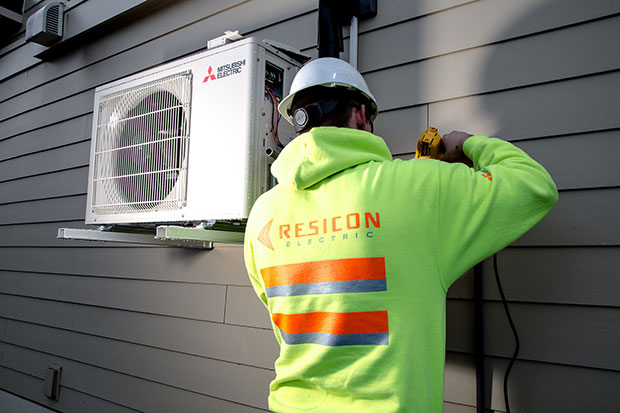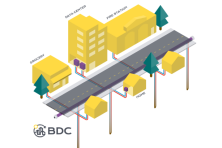Three years ago, a record-breaking 116℉ heat dome formed over the Pacific Northwest, leading to the deaths of 116 people in Oregon, 157 in Washington and 619 in British Columbia. Our communities were not prepared to weather the dangerous conditions; many died because they lacked access to cooling. Extreme heat events like this are a dramatic example of the dangers of burning fossil fuels. We need clean energy solutions that protect our climate AND our communities.
Nationwide, in 2023 alone, 2,300 Americans died from the effects of extreme heat, fueled by climate change. The Northwest has historically enjoyed mild seasons, and many have never had to think about air conditioning to survive summer. This region has also enjoyed relatively low energy rates—allowing folks to get by with less efficient technologies for heating and cooling.
Our climate is changing, putting our health, safety, and economic security at risk. Climate change is increasing the likelihood and the number of extreme weather events. Since the deadly heat dome in 2021, the Northwest has continued to break temperature records for heat and cold, most recently with devastating ice storms that left thousands of people without heat and power. 2024 is projected to produce a deadlier, more brutal summer, with higher temperatures forecasted for much of the United States.
At the same time, Oregonians are experiencing the highest energy bills of their lifetimes due to the rising costs of fossil fuels, aging infrastructure, and wildfires (see this explainer of what’s driving utility increases by the Citizens Utility Board). However, the homes and buildings we live, work and rely on were built without this new reality. To face these challenges and protect our communities, we need to adapt our homes and buildings to meet our changing needs.
Adapting to climate change is daunting, but tools are available today that can make our homes healthier, more resilient, and affordable. Heat Pumps are a key climate solution. They efficiently supply BOTH heating and cooling and are powered by electricity (which is mandated to be 100% clean by 2040 for Oregon). Heat pumps can accelerate our transition away from fossil fuels, while also helping us adapt to changing climate conditions.
Switching our heating from methane gas to electricity benefits our climate with lower emissions, and our family’s health with less exposure to harmful impacts of gas. The energy efficiency of heat pumps also reduces the strain on our electric grid.
Across Oregon, homeowners, landlords, and business owners are installing heat pumps and experiencing greater comfort at lower prices. GreenSavers, an Oregon business that specializes in home energy efficiency, has compiled stories from customers who made the switch to heat pumps in Bend and Portland and are experiencing their real-life benefits. One homeowner even cut their utility bill in half after installing a heat pump!
These are some of the reasons heat pumps a major win for comfort, our climate, and our pocketbooks. Stay tuned for the second part of this blog series with ways we can accelerate the transition to heat pumps to make sure they’re affordable and accessible for all Oregonians!





